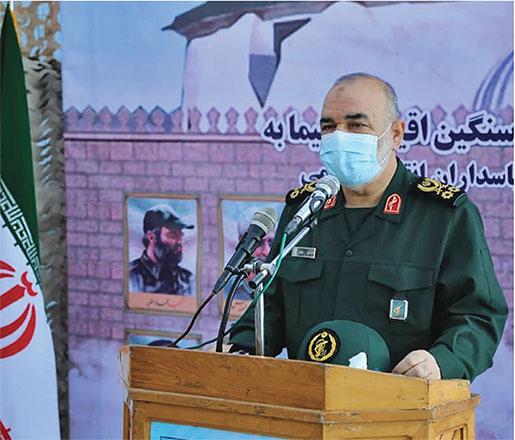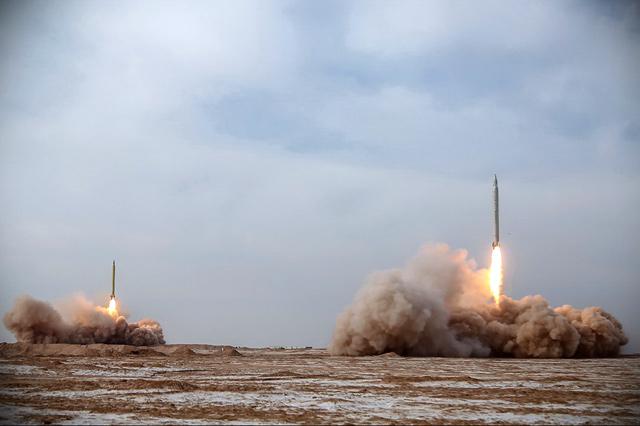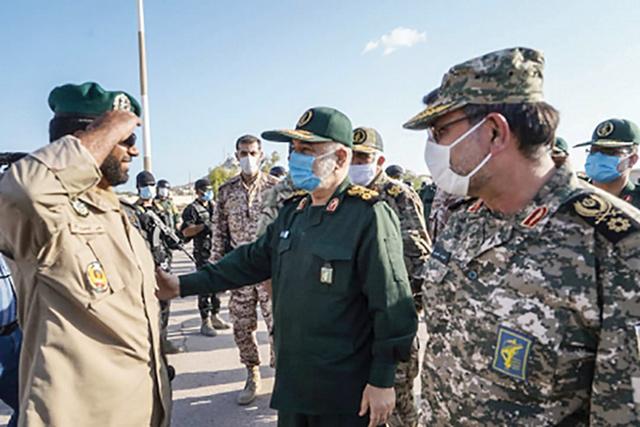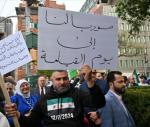You are here
No limit to where Iran can defend itself, Guards say
By AFP - Nov 20,2020 - Last updated at Nov 20,2020

This handout photo provided by Iran's Revolutionary Guard Corps official website via SEPAH News on Thursday, shows Guards' chief Major General Hossein Salami speaking during the inauguration of a warship named after slain naval commander Abdollah Roudaki (AFP photo)
TEHRAN — Iran's Revolutionary Guards are not tied to "a specific geographical area" in defending the "vital interests" of the Islamic republic, its commander said on Thursday, in an apparent retort to Washington.
Guards commander Major General Hossein Salami, quoted on the official Guards website, Sepahnews, spoke after The New York Times on Monday said that Donald Trump had recently asked top aides about the possibility of striking Iran's nuclear facilities.
But senior US officials dissuaded Trump "from moving ahead with a military strike", warning that such an attack could escalate into a broader conflict in the last weeks of his presidency, the Times wrote.
Salami noted Iran's position in the energy-rich Gulf, calling it a "strategic region for the world economy" in which Iran has "a privileged and unique role in ensuring the safety of the maritime expanse".
Salami was speaking at the inauguration of a new warship equipped with "missile systems", a helipad and capabilities to launch drones from, as well as to transport speedboats, Sepahnews said.
"We are not limited to a specific geographic area to defend our security and our vital interests," Salami said.
"If some want to threaten the interests of this great nation and country, they will certainly not be safe anywhere on Earth," he added.
He insisted Iran would not make the first move of aggression towards another country, but said that our "defence strategy is always accompanied by offensive tactics".
Tehran and Washington, enemies for more than four decades, have edged to the brink of war twice since June 2019, amid tensions over a 2015 international nuclear agreement.
Trump's withdrawal from the nuclear agreement in 2018 was followed by the unilateral reimposition of crippling economic sanctions which prompted Iran to suspend some of its obligations under the deal.
Iran argues it has moved away from its commitments because of the sanctions and the inability of the other parties — Britain, China, France, Germany and Russia — to provide it with the deal's promised economic benefits.
Related Articles
TEHRAN — Iran's Revolutionary Guards test-fired ballistic missiles against targets in the Indian Ocean as they wrapped up a two-day exercise
TEHRAN — Iran's Revolutionary Guards announced Thursday the arrest of three "terrorists" accused of plotting an attack against senior comman
TEHRAN — Iran's Revolutionary Guards chief Hossein Salami vowed on Saturday to respond to any "action the enemy takes", as he visited a stra

















